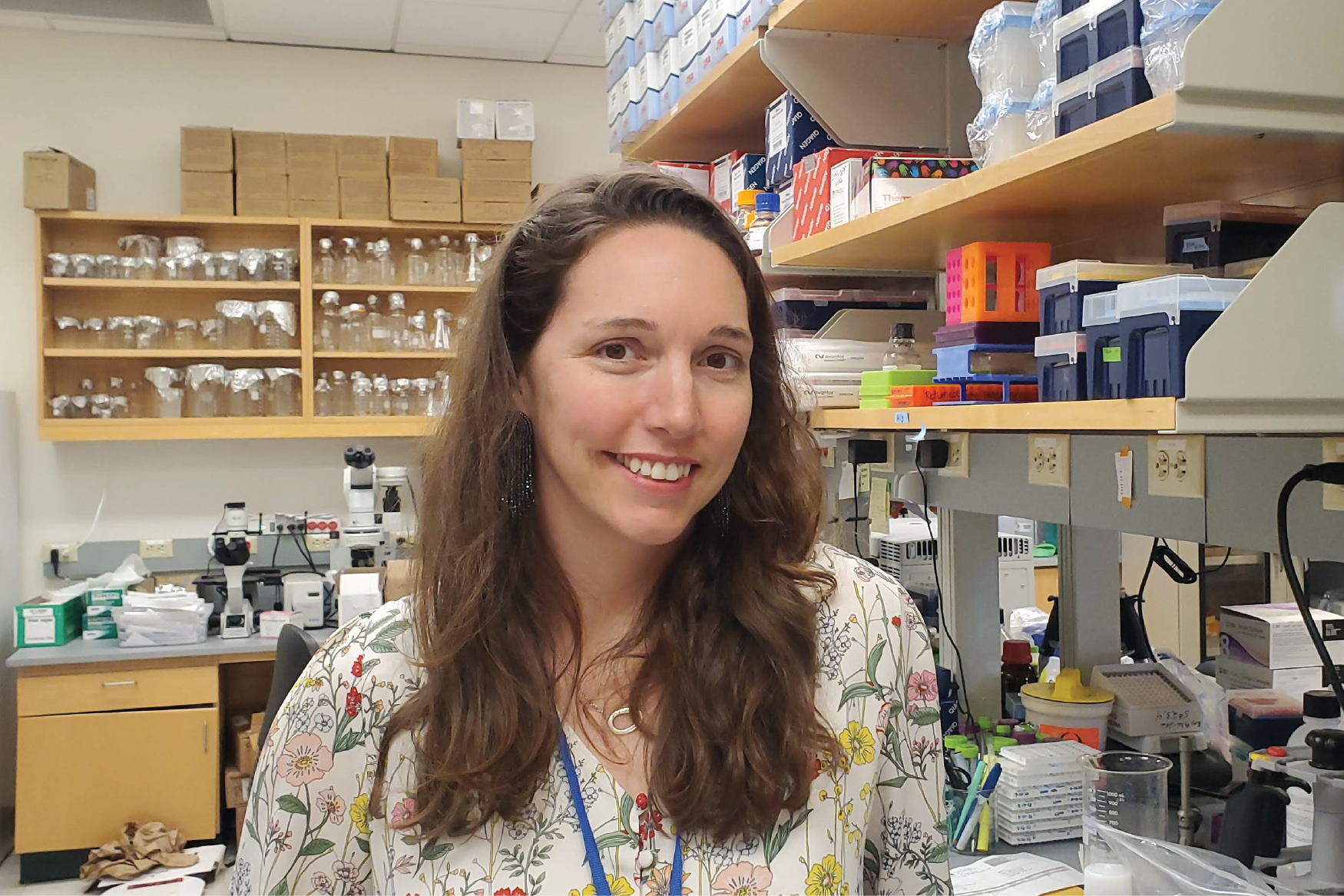
Michaela Reagan, PhD
An estimated 12,540 people will die from multiple myeloma this year. Multiple myeloma is a unique type of blood cancer that results in the buildup of cancerous cells in bone marrow. This buildup of tumor cells can lead to hypercalcemia (too much calcium in the blood), anemia, renal failure, and osteolysis (bone destruction). A major risk factor for multiple myeloma is obesity, and approximately 68% of patients with multiple myeloma are obese or overweight at the time of diagnosis. However, despite obesity becoming a growing epidemic with many known immunological and metabolic complications, the connection between obesity and multiple myeloma is not well understood.
The Reagan lab, led by Dr. Michaela Reagan, is working to fill these gaps in knowledge by improving our understanding of how obesity and fat cells (adipocytes) support the survival of multiple myeloma tumor cells. Obesity is linked to an increase in circulating fatty acids and other blood lipid changes, which could increase the proliferation of multiple myeloma cells through many pathways. The Reagan lab and colleagues have demonstrated that targeting fatty acid binding proteins, FABPs, which are utilized for fatty acid uptake and shuttling between cellular organelles, can disrupt the division of myeloma cells. The Reagan lab is now working to understand more about how fatty acid metabolism can be blocked in myeloma cells, and what the ramifications of this are. They are developing models of obesity in myeloma mouse models, and investigating how obesity affects cell growth and drug response. Overall, they hope to connect the dots between obesity and cancer to elucidate how cancer cells use different energy sources, with an overall goal of developing more effective, less toxic, and more targeted therapeutics for all patients.
Dr. Reagan recently received a Leukemia and Lymphoma Society (LLS) Scholar award to support her laboratory’s translational myeloma research over the next 5 years. The funding supports 50% of Dr. Reagan’s salary, allowing her and the laboratory the freedom and time to explore more high-risk, high-reward projects. With this support, the Reagan lab will continue to explore the therapeutic potential of targeting fatty acid binding proteins in the treatment of myeloma. The goal is to better understand the contribution of fatty acid metabolism to myeloma progression and the role obesity plays in different stages of myeloma progression. The funding from the LLS was made possible by prior pilot support from the NNE-CTR, collaborations with UVM Cancer Center members Drs. Julie Dragon, Gary Stein, and Jane Lian, and additional collaborations with Drs. Scott Tighe and Andre van Wijnen.
The Reagan lab values the perspective of patients experiencing multiple myeloma and often invites cancer patients and their families to the laboratory to talk about their experiences and the direction of the lab’s research. Originally from Huntington, Vermont, and a current faculty member of the UVM Cancer Center and MaineHealth, Dr. Reagan is especially passionate about reducing the burden of cancer in Vermont, New Hampshire, Maine, and upstate New York. She anticipates her lab’s research will lead to the development of new prognostic biomarkers, immunotherapies, or more effective combination therapies for patients experiencing multiple myeloma.